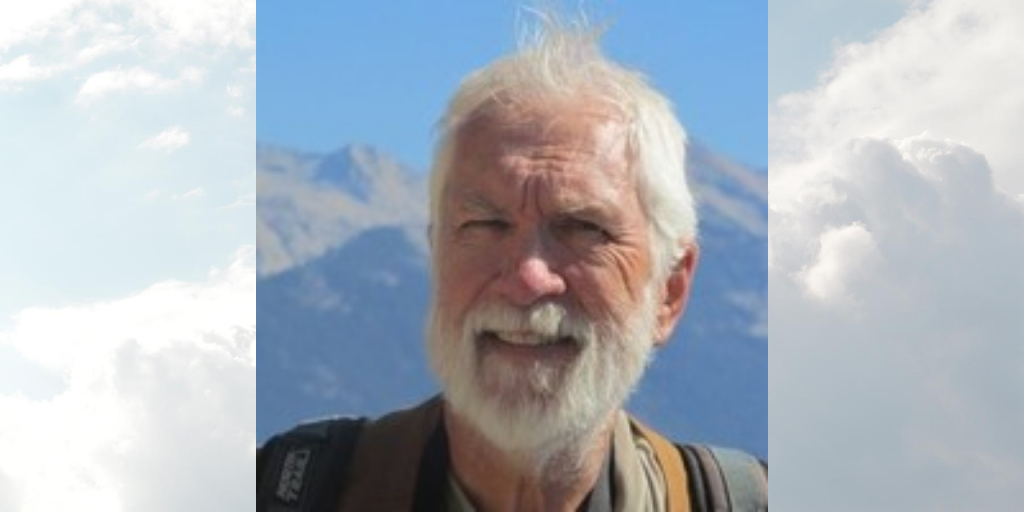It all happened so fast. On July 20, 2020, Jacquelyn Nelson messaged me on Facebook, wondering if I could write something for John Scull’s memoirs, to which I gladly agreed. Two days later, I heard from Jacquelyn that John Scull was admitted to a hospital. Again, two days later, the unexpected news of his death.
I did not realize that his death would affect me so much, while I was busy preparing for two INPM webinars for July 30 (https://www.meaning.ca/conferences-and-events/). I even dreamed about him two nights in a row. This was probably because he was very close to me during our graduate school days, and his death reminded me of my own mortality–the same fate could befall me anytime–from being active to being dead in just a few days.
I still can not believe that John is no longer with us. I have not seen him for many years. I lost touch with him after he moved to Duncan, BC, following his retirement.
I first met him in Dr. Amsel’s lab, Psychology Department, University of Toronto (St. George Campus) in the Fall of 1967. He was the only other graduate student accepted by Amsel that year. John was a tall and lanky guy from UCLA. He was bright and laid-back; he listened more than he spoke. I still have the image of him listening with his eyes half closed and holding a pipe in his mouth.
In the late 60’s, Amsel’s lab was a busy and exciting place to be–probably the last stronghold of the Hull-Spence empire of learning theory (Wikipedia, 2019), then dominating mainstream psychology. There were at least three doctorate students, two post-docs, and 3 or 4 honours students. We spent many hours together, even during weekends because experiments were going on seven days a week. Our weekly research seminar was a very lively event, often attended by other professors.
At first, I was the only graduate student who volunteered to take on Amsel’s new project on studying generalized persistence effects in baby rats and baby chicks (Amsel, 1992; Wong, 1995). Other graduate students were still engaged in traditional learning-theory research,
John and I could not have been more different in temperament. I was intense and outspoken; he was calm and soft-spoken. We often spent many hours debating theoretical issues in psychology. Usually, I proposed my new interpretation of various phenomena, and he was very good in picking holes in my conceptualization after listening patiently. His talent in critiquing psychology theories was evident, when he questioned Amsel’s well known interpretation of frustration effect (Scull, 1973).
I am so glad that through our theoretical discussions, we were able to collaborate on a couple of experiments to settle our arguments ( Wong, Scull & Amsel, 1969; Amsel, Wong & Scull, 1971).
However, our only major disagreement was over his career decision to move back to the West coast. He planned to find a teaching position in a university on the West Coast because he liked the warmer weather there. I strongly argued against it, because it would greatly limit his opportunity to find a good teaching position. To me, it would be a waste of his creative intelligence working in a clinical setting.
I was not surprised that towards the end of his clinical career in the 90’s, he became a pioneer in ecopsychology where he could make full use of his creativity in research and writing (ICE, n.d.).
I am grateful that I had met someone smarter than I was in some areas at graduate school. He was much better than me in statistics and computer programming. He was also superior in logical thinking. Those were the happy days when we could immerse ourselves in research and intellectual debates.
John Scull was a true scholar and a gentleman. To the best of my recollection, I don’t think he ever raised his voice or was impolite towards anyone. I don’t think anyone could provoke him to anger, because he was such an even-tempered and cultured person. He was a rare gem belonging to a kinder and gentler era. In his quiet way, he had made many lasting contributions to the world.
References
- Amsel, A. (1992). Frustration theory: an analysis of dispositional learning and memory. Cambridge University Press.
- Amsel, A., Wong, P. T. P., & Scull J. (1971). Transfer of persistence in the domestic chick: Imprinting, punishment, and resistance to extinction of a food-reward running response. Psychonomic science, 25(3), 174-176. DOI: 10.3758/BF03332491
- International Community for Ecopsychology (ICE). (n.d.). John Scull. https://www.ecopsychology.org/directory/502/john-scull-2/
- Scull, J. W. (1973). The Amsel frustration effect: Interpretations and research. Psychological Bulletin, 79(6), 352–361. https://doi.org/10.1037/h0034430
- Wikipedia. (2019). Drive reduction theory (learning theory).
- Wong, P. T. P., Scull, J., & Amsel, A. (1969). The effect of partial “quinine” reward on acquisition and extinction. Psychonomic science, 18(1). DOI: 10.3758/BF03332327
- Wong, P. T. P. (1995). A stage model of coping with frustrative stress. In R. Wong (Ed.), Biological perspectives on motivated activities (p. 339–378). Ablex Publishing.
Cite
Wong, P. T. P. (2020). Remembering John Scull: a Scholar and a Gentleman. DrPaulWong. http://www.drpaulwong.com/remembering-john-scull-a-scholar-and-a-gentleman/

 Meaning Conference 2025 will be the INPM’s first in-person conference with a virtual option after the pandemic.
Meaning Conference 2025 will be the INPM’s first in-person conference with a virtual option after the pandemic.